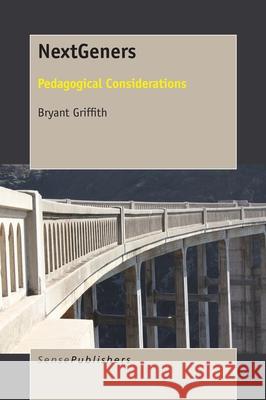NextGeners » książka
NextGeners
ISBN-13: 9789463006415 / Angielski / Twarda / 2016 / 156 str.
NextGeners
ISBN-13: 9789463006415 / Angielski / Twarda / 2016 / 156 str.
(netto: 420,89 VAT: 5%)
Najniższa cena z 30 dni: 423,64
ok. 30 dni roboczych.
Darmowa dostawa!
NextGeners bring vibrant life experiences, risk taking, and creativity into the classroom. They demand to be included in the why and how of learning. Teachers bring a love of learning, empathy, content and theoretical perspective that serves as a setting for how the classroom should operate. This book addresses two concerns arising from this dichotomy. First, teachers may have a theoretical perspective but not explicitly embedded in practice. This needs to change. The author argues that NextGeners understand personalized viewpoints but often miss that teaching and learning are grounded in a process of historical interactions. Second, NextGeners are social beings living in and defined by social media and the web. We must invite both to share how to construct shared understanding and build a learning community that makes sense in our emerging paradigm.This is about self-knowledge as well as knowing others, and for me the two are interconnected on many levels. The acts of knowing are also the fabric of learning and teaching, and teaching is an act of many parts. I argue that if you are approaching a career in education at any level from the primary perspective of imparting knowledge and being the subject matter expert, you have one part of the puzzle. Another perspective is to see your role as a caring, loving person who interacts with and guides students as they set the pace of learning. This set of ideas offers you the view that all of this is becoming increasingly intertwined. The world, at least the Western world that we inhabit, has always been changing and in flux. There have been relatively short periods in which matters appeared stable but that has usually been a matter of perspective. Today our challenges are the same: how to know ourselves and how to know the world around us. In the last century and a half, public education has been given the role of answering these two questions and while one can argue that the task was misguided, there is little doubt that for some education has been the vehicle to enhanced self-knowledge, to grand discoveries in science, and to entrancing acts in all the arts stretching our imaginations. Those goals remain unchanged; what has changed is the ability to access information and that calls for an in-depth consideration of the notions of teaching and learning. Our information societies, and there are many, are often personal and relative to our immediate interests, such as where can I buy a product, find a factual answer, or check on what a friend is doing.











